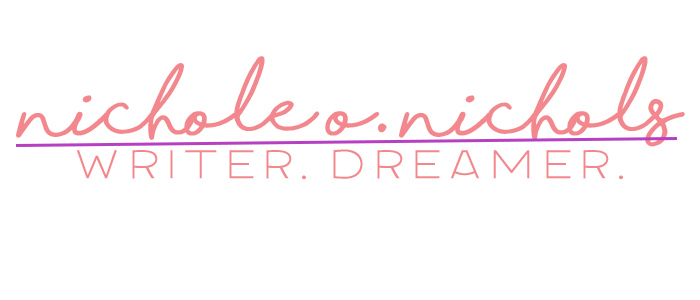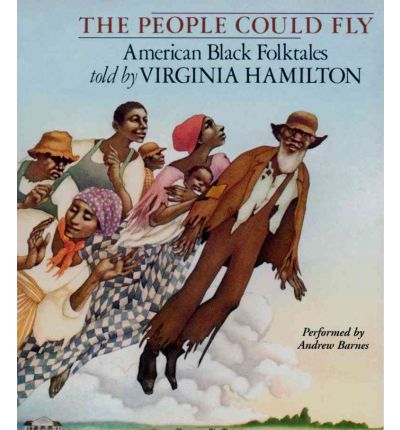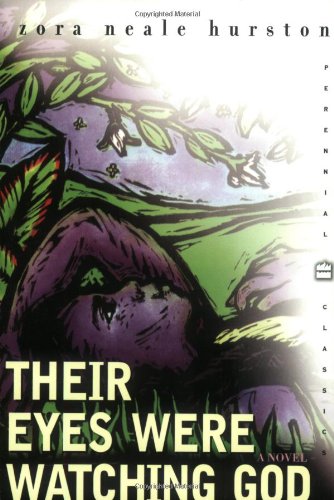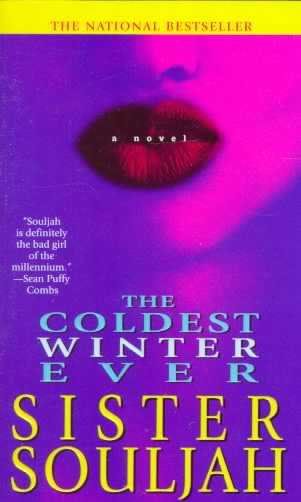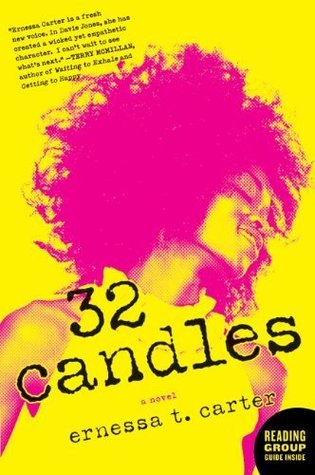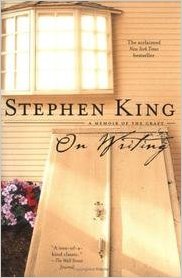Bookshelves In Color: Starrene Rhett Rocque, Entertainment Journalist and Author
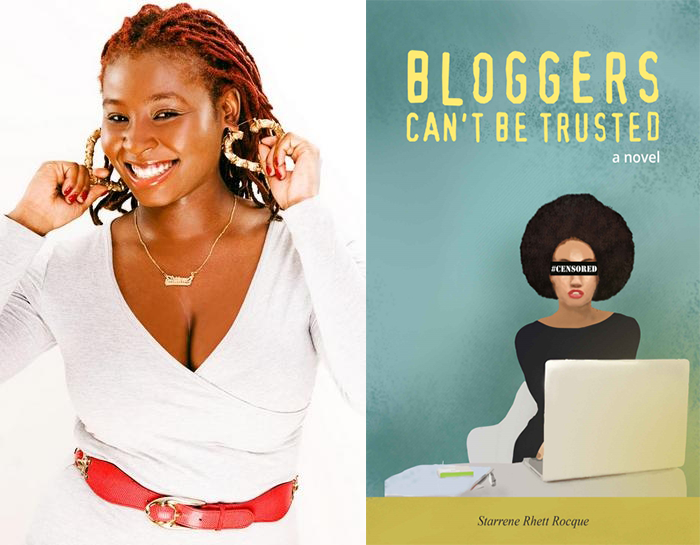 Starr Rhett Rocque's resume is one that many journalists dream of. She's held editorial positions at publications and digital platforms such as Jet magazine, VIBE magazine, XXL magazine, BET.com, The Grio, and AllHipHop.com all while maintaining the award-winning Hip-Hop and entertainment blog GangStarrGirl.com. She's even had appearances on the second season of the popular reality show Love And Hip Hop. Rocque now adds author to her impressive credentials with the release of her first novel, Bloggers Can't Be Trusted. I talked with her about what inspired her to write the novel, her process, and some of the books that have influenced her along her journey to becoming the amazing writer she is today. Enjoy!
Starr Rhett Rocque's resume is one that many journalists dream of. She's held editorial positions at publications and digital platforms such as Jet magazine, VIBE magazine, XXL magazine, BET.com, The Grio, and AllHipHop.com all while maintaining the award-winning Hip-Hop and entertainment blog GangStarrGirl.com. She's even had appearances on the second season of the popular reality show Love And Hip Hop. Rocque now adds author to her impressive credentials with the release of her first novel, Bloggers Can't Be Trusted. I talked with her about what inspired her to write the novel, her process, and some of the books that have influenced her along her journey to becoming the amazing writer she is today. Enjoy!
NN: How did you decide that you wanted to write for a living and that journalism was your calling?
Starr: My fascination with media started when I was probably about nine. I would watch shows like Dateline and 20/20 and stuff like that with my mother. I just loved the story telling aspect. I loved the reality aspect. I just loved how I just felt like you could learn a lot about people in the world just watching these types of stories. Then, what ended up happening was by the time I got to high school, probably about my junior year in high school, I had enrolled in an AP English class that was specifically geared towards newspaper writing. At first, I wanted to be an anchor. I wanted to be a TV reporter, but then by that time in high school I was doing the newspaper writing class and I had started reading magazines like The Source and Vibe.
I was just like, oh this is cool. I can actually cover entertainment writing and in a way that wasn't fluff because back then those types of magazines had more stories that had more substance. That was just always fascinating to me. Pretty much during my whole life, I just liked the idea of telling stories. Especially the stories of people who were hiding in plain sight or just finding different angles of stories, so it's been a long time (that I'd known I wanted to be a journalist). I had known since high school. I think that class in my junior year was when I knew really that I was going to major in journalism, for sure.
NN: Do you have any tips for anybody who's an aspiring journalist, especially somebody who wants to get into entertainment journalism or magazine journalism? I started out at Hampton in mass media. I changed my major to English sophomore year. One reason I did was because it seemed like to me Hampton was more about hard news newspapers than they were about features in magazine writing. Then, when I went to Syracuse for my Master's in journalism it seemed to be the same way. I mean, they had a whole magazine department, but even still it was kind of like, you know, well, newspaper writing and hard news is real journalism and features are fluff that you just kind of do when you're not really as talented as a newspaper writer. What are some tips that you have for people who want to get into magazine writing since they may have to deal with this type of attitude?
Starr: Yeah. It's funny you said that because yeah, at Hampton we did have teachers who were like, "What do you want to do magazine writing for? You're too talented," or stuff like that, but it was like I knew what I wanted. I did manage to get internships in the right places. The right places being magazines and the more entertainment focused places. That helped a lot. Having the heart has helped a lot too. As far as tips, one, it's hard. It's always been a hard industry to break into. "It" being journalism period and media period, but now, it's changed so much from when I started until now. It's a lot harder, even for people who are seasoned, so if you are really serious about being an entertainment journalist, these days internships help because they help you build up the right connections and you can potentially meet people who can look out for you if a job opportunity pops up.
That's good because a lot of times the job opportunities that pop up, even if they're posted on Mediabistro or Linkedin, they're probably already being circulated within that company. Those people in that company are already looking out for their people. They've already started circulating with their mentees or their interns, stuff like that, so definitely get in with the internships. Again, understand that it's hard. It might take awhile, and I mean awhile. I didn't get a real journalism job for like maybe two or three years after I graduated. I did have to work other types of jobs. Some weren't so fun. Some were fun. I worked in PR for a little while, and that was actually pretty helpful too because publicists are pretty much charged with making connections with the media, so that they allowed me to meet people in the media.
The other thing is, consider other ways you might want to write. Journalism is so over saturated and sometimes you might get to a point where you realize, maybe it's not worth pursuing journalism. It's okay if you do, but you can still write. You can go into marketing. You can go into advertising. You can do content marketing, which is popular with blogs and email lists. You can do copy writing, so there's other ways you can write, too. If you get to a point where you just feel so discouraged about journalism that doesn't mean that you can't write. I guess in short, just know that it's hard. You have to fight for it. You have to be tenacious. You have to build those connections and you have to stick with it.
Oh, and in the age of social media in 2016, definitely keep a blog. You don't necessarily have to update it every single day, but at this point, good clips from blogging, like if you write your own opinion pieces or if you take it upon yourself to do your own research stories, those can actually count as clips, so keep that around. Keep that in mind. Then on your social media, be very intentional about what you put out there, so don't just pop off for attention or try to say the most shocking thing for attention. Really, really, really think about the things you say and how it might make you look for future employers.
NN: You kind of touched on my next question which is about burn out. I've been reading your blog about how you've kind of gotten burned out. It seems like now you want to focus more on your creative work than on journalism. Talk about your experience with that and what led you to focus on writing your first novel Bloggers Can't Be Trusted.
Starr: Oh, that burnout is so real. Sometimes I get a lot of younger people who still want to do journalism. I was just like why? I mean, just to be honest, but I don't want to discourage anyone from trying or anyone from shooting for their dreams because you never know what could happen. Everybody's path is different, but I cannot stress enough how hard this industry is. I think it's a lot harder now because there's so much over saturation. Burnout is actually really very common in this industry. When I meet people who are still thriving and aren't super stressed, I'm always surprised because those people are rare.
In terms of my experiences, what I've encountered a lot of unfortunately, is just really negative people and toxic work environments. You'll find more of that if you work at some of the smaller companies, or at more independently owned companies because sometimes they tend to not have the right human resources in place to protect staff. For me, I just worked for lots of tyrants. What I've experienced a lot of is, people who are editor-in-chiefs or directors of digital content or whatever, people who are supposed to have stayed current who didn't stay current, but they won't tell you that they didn't stay current. They like to pretend, oh I know what I'm doing, when they really don't. Then, what starts to happen is, they get threatened by newer, younger faces or not even younger, but just other people in the company and they might do things to try to hinder your success. You might encounter that a lot, so it's definitely important to stay up on all the new trends and things of that nature.
I've experienced lots of just kooky characters. Some people just really have chips on their shoulders. It unfortunately comes out in how they treat other people. There's a lot of that. As frustrating as it was and as much as it led me to burnout, on top of the fact that I have been laid off three times at this point, twice from a magazine and then once from a TV network, so that can kind of weigh on you too. All of that is kind of what led me to start writing Bloggers Can't Be Trusted. Sometimes I find myself venting to people about these crazy experiences I was having and these kooky people I was coming across. (I was venting to) my sister in particular, but people in general, but my sister especially. My sister's a psychologist, so there's not too much crazy she hasn't seen, but she's like, "These people can't be real. Oh my God. Are you serious?" I'm like, "No, yes, that really happened." My sister, for example, was like, "You should write a tell-all book. You should blow these people up."
For me, tell-all books are not necessarily my style, so I was just like, "Well, let me keep a journal and kind of see where this goes." The journal kind of blossomed from me just writing about everyday experiences. What I'd do is I'd wake up in the morning and just write kind of free form, just random thoughts from my mind. Then, it started to really take form into an actual story. That's kind of how Bloggers Can't Be Trusted came about. It was kind of like therapy. I was writing and I was like, yeah I'm going to make fun of everyone, hahaha. This is going to make me feel better. Actually, the story didn't even turn out the way I thought it was going to turn out. It kind of started forming more of a love story in there than I initially set out for.
NN: Are your characters composites of real people that you've encountered?
Starr: Yeah. Some of them are completely made up. What's interesting is, I think a lot of people will read Olu Major and think that he's a real person, and I completely made him up. I mean, he was inspired by a few different people. Not real life people that I know, but people that everyone knows. Like, famous people, so he's not based on anyone that I've actually encountered, but Nyela, I'm not going to lie, a lot of elements in Nyela's personality remind me of me. That wasn't purposeful. It just came out that way. I would say 85 percent of the characters are based on people that I've actually encountered or witnessed in real life.
Olu Major is probably going to be the one character that everyone thinks is, "oh my God", because I did date a rapper. Not a famous rapper, but they're going to think, oh, is that...? No, that's not, but everyone else is pretty much definitely based on people I really encountered. (Nyela) has this crazy boss that you're going to see. Then, oh yeah, I didn't incorporate the villain. The villain is Cynda Bentley. I didn't incorporate her on purpose because she really is a character, but she's like a relationship expert slash publicist. She's like one of those people that does a billion things, but you don't really know what she does still.
NN: Even though they're composites, how do you write about people that you know in a way that is realistic, but not so realistic to the point that they may recognize themselves?
Starr: That's actually hard. Have you seen The Best Man? Of course you have right?
NN: Mm-hmm (affirmative), yes.
Starr: Remember how Harper Stewart got caught up in that whole, that situation because everyone was like, "Oh, that's me," and he was like, "No, it wasn't you. I wasn't talking about you and blah, blah, blah." Well, that's actually hard because what I find that sometimes, as a writer when you are taking elements from your real life because even things seep in subconsciously, so as I go back and read certain things, there are certain characters that I don't think I can avoid. There's going to be certain characters that I actually didn't base on anyone specific, but people are going to probably reel in on someone specific and it's really no way that you can help it sometimes. Parts of these characters are just in your psyche and they come out, but I think the best thing to do is, don't write about a situation exactly as it happened. Change something around.
NN: What are three to five books that made you into the journalist and writer that you are today?
Starr: I came up in a family where my mom was a teacher. Being dumb in my family was not cute. We're just all a bunch of nerdy people. I've always loved to to read. I've been reading since for as far back as I can remember.
As far as books that have made me who I am, I would have to say one of the books is from elementary school. It's this book called The People Could Fly by Virginia Hamilton. I just loved it, and even though it's a children's book, it's not really. It's a compilation of black folk tales. I remember I actually had to read one of the stories in a story telling contest. I think I was like nine or ten, and all those stories in the book just resonated with me. They were just so imaginative and creative, and they touched me. There were certain stories that scared the heck out of me. There were certain stories that inspired me. The title story, "The People Could Fly", inspired me. The story that I read in the story telling contest was "Little Eight John", which was about this bad little boy who didn't listen to his parents. Then, he got turned into a spot of soot or something, but that freaked me out.
I just felt like I could feel like it's just some words. I remember practicing for the story telling contest and we would listen to people's audio readings of the books. It was just something about the words that just moved me and I was like, "Wow, a book can make you feel like that? I'd love to write a story one day."
Moving onto getting a little bit older, There Eyes Were Watching God stuck with me. I was definitely in high school when I read that book. I was just fascinated by Zora Neale Hurston's use of dialects and intentions about telling a woman's story from a woman, by a woman. It just seemed very authentic to me, very real. I loved that about her.
The Coldest Winter Ever ...I know people call them hood novels or whatever, but those are still stories that need to be told. That kind of sparked off that genre. I think there's two more books I could come up with. There's another book called 32 Candles by Ernessa T. Carter.
NN: Oh, I love that book!
Starr: Yes. That book is everything. Just from her voice to the main character. It's just everything. It speaks to us more nerdy black girls. You know we don't really get love like that.
The last book I'd just like to call out is Steven King's On Writing. It's not a novel. It's not like this super major literary work, but it's basically Steven King's way of presenting you with his biography, but also his life on writing at the same time. I just like how he did that. It really came across as he's just this OG uncle just kicking it in your living room giving you advice on how to write. I really enjoy his advice, so those are the books for me.
NN: What's your all time favorite book that has contributed to your philosophy on life?
Starr: That's a good question. This might sound crazy, I mean, it's changed, but I would have to say actually Steven King's On Writing. Something about his advice. Well, it changed my philosophy on my writing life, on how I write and how I approach writing, especially coming from journalism to tackling this world of novel writing because it's completely different. It's a lot harder. Yeah, Steven King definitely, reading that book made me feel like I could do it. It didn't make me feel crazy because before that everything I had heard about writing novels was about you have to do an outline. You have to do this. You have to do that. I was just like, I don't know if that's my style, but reading Steven King and he's like your style is your style. Go do what makes you feel comfortable. I think his advice is the advice that changed me the most in terms of how I write and see things.
Starr's new novel, Bloggers Can't Be Trusted, is available at Amazon.com Find out more about Starr's projects at her blog GangStarrGirl.com.
